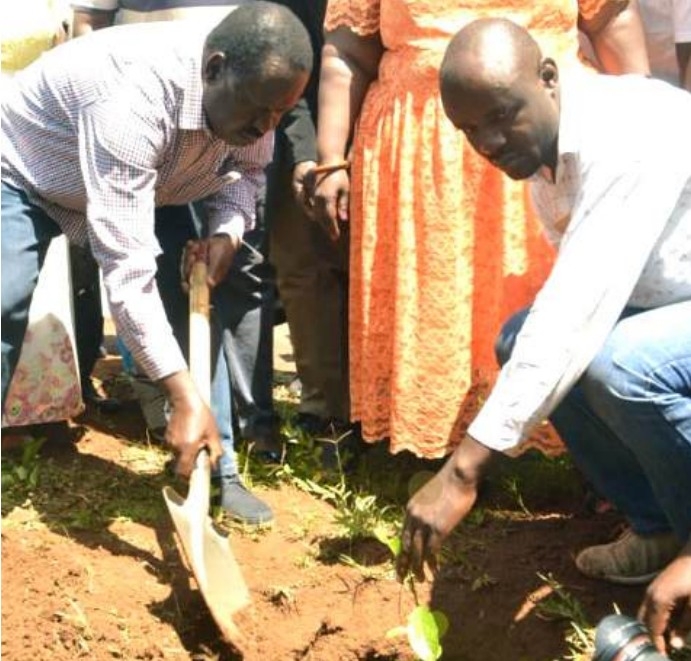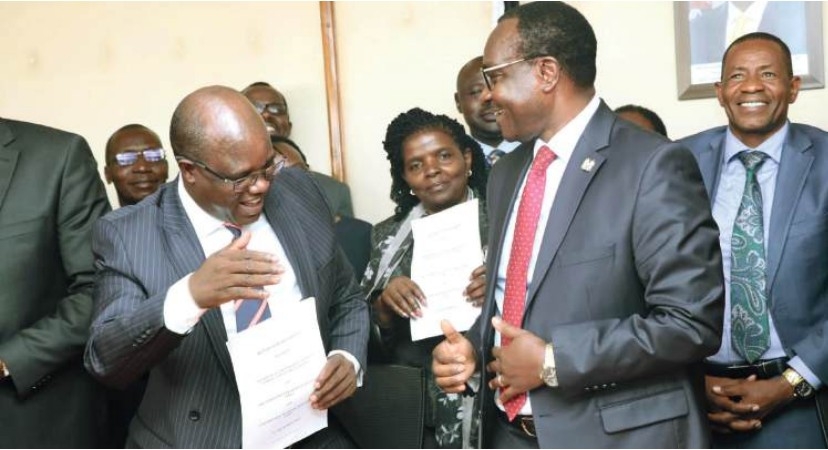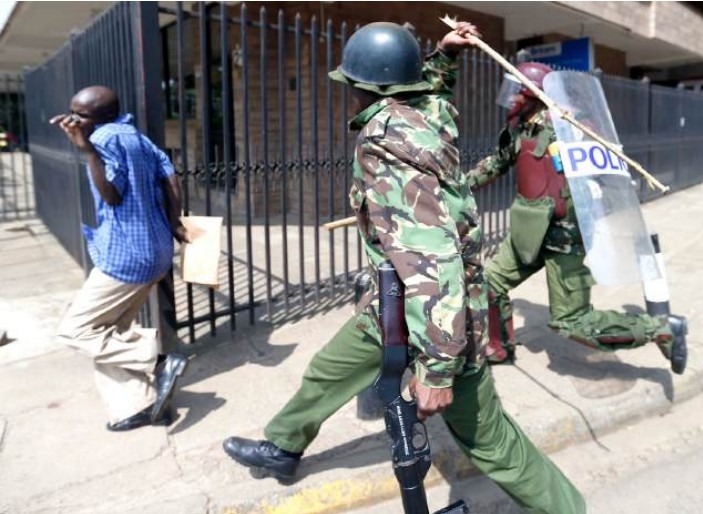In 2000, SO was only eight years old when her innocence was violently robbed.
She suffered in the hands of a sex predator who defiled her repeatedly.
At the time, she was so fearful that she could not report her abuser.
But after four years of constant defilement, she gathered courage and threatened to report the abuser. That is when he stopped.
Even after he stopped, SO still chose to remain silent.
It took her seven years before she opened up.
Today, SO is using her ordeal to encourage women and children who go through such to speak up and pick up their lives.
What was once meant to bury her, has birthed a beautiful life mission of helping others.
Speaking to the Star, SO said the most essential thing sexual and gender-based violence survivors have to do is speak up so they can get help and justice.
SO said she suffered for years in the hands of her abuser, because of not making up her mind in good time.
“Do not keep quiet. When somebody tries to abuse you, speak out immediately so that you get help. I am lucky that I did not get pregnant, disease or lose my life," she said.
"Own your shame. When you speak up, the shame turns to the perpetrator."
SO works at a compassionate centre and she said her abuser had forced her to an isolation corner.
“Because I was afraid, it forced me to remain silent as he repeatedly raped me," she recounted.
“It is not a good experience. I tried to take my life on two different occasions. It reached a time I was not hurting physically, but psychologically."
Opening up was one of the best decisions she has ever made. She went through counselling, therapy and one step at a time, the bitterness faded away.
She is assisting women and children at the evacuation centre where survivors are taken to heal as they follow up on legal redress.
SO advises parents and teachers to check on the children daily to know what may be happening behind their backs.
“The truth is that SGBV is rampant in our communities but children fear speaking up. Let us educate our children at home, school, churches and mosques on what is considered gender-based violence," she says.
"It is not a must that a sexual act takes place before it becomes SGBV, it can even be how someone speaks to you, how somebody holds you or even looks at you."
Naya Kenya South Western region monitoring and evaluation officer Faith Abala said every member of society, starting with parents to duty bearers in government, must play their part to ensure cases of SGBV reduce.
She said Kisumu is one of the counties with high SGBV prevalence.
Abala said they are on a mission to inform and empower youth and other members of society on referral pathways for reporting of cases.
"Many survivors do not report because they do not have the right information on the proper channels to follow," she said.
They are collaborating with various organisations in Kisumu, Mombasa and Nairobi under the Right Here Right Now 2 project to reduce SGBV cases in the three counties.
The partnership was created to allow young people to enjoy their sexual and reproductive health and rights in gender-just society.
Abala said the partnership seeks to tap the power of youth to improve policies and laws.
She said health departments in counties should have trained healthcare workers to handle SGBV cases.
Naya Kenya is collaborating with Access to Medicines Platforms in Kisumu to advocate against SGBV.
Access to Medicines Platforms official Levi Juma said they played a major role in the enactment of the Kisumu county SGBV policy of 2019, which led to establishment of the SGBV rescue centre at Jaramogi Oginga Odinga Teaching and Referral Hospital.
He said they are planning to revise the policy, so it addresses cases of femicide.
Juma said awareness creation is one of the major ways of ensuring SGBV cases drastically come down in Kisumu.
Mike Wanjegu from Tinada Youth Organisation said mental health is important, since one of the things that bring out violence in families or any relationship are stressful situations.
“As mental health experts, we are trying to ensure people understand their mental health so they can know what they can deal with and what they cannot deal with and seek help for healthy and fruitful relationships.”
Wanjegu urged Kenyans to get the relevant information about mental health and understand what mental health is.
This, he said, will lead people into seeking help from experts or professionals.
Mary Immaculate Ogong’a, an advocate of the High Court, said lack of witnesses has a direct link to collapse of SGBV cases.
“With femicide, some of the cases are now coming up as acts of passion, so at the end of the day, it comes to murder. And murder is a criminal offence and there’s the law that ensures that anyone who has been charged with murder is convicted if they have been proven guilty. But the issue is the investigation, that is where it starts,” she said.
The lawyer said once investigations are done properly and witnesses are present in court, there is no reason why the court cannot convict a person with murder that is aligned to femicide or any other act of violence.
“Yes, there is a statement that has been given to police, but that statement will not come to court by itself. You have to come and give an account of what you saw, what happened, so that the court now can easily get a picture of how this person either murdered the victim. If you don’t come to court, then the court is not able to get a clarity of what happened,” she said.

















